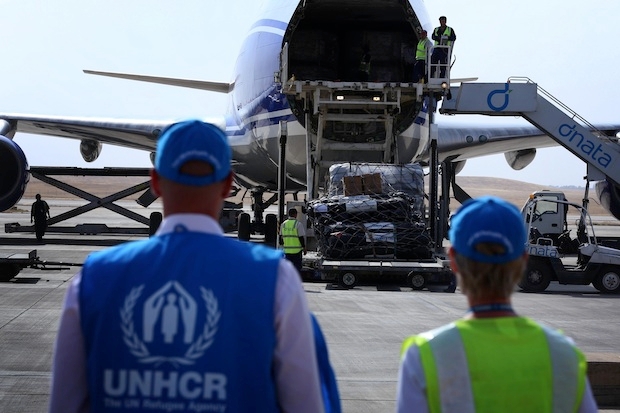There’s a curious aspect to the debate – or what passes for it – about Britain getting involved in military action against the Islamic State. Isabel Hardman put her finger on it in her piece in this week’s magazine, identifying the defeat of the PM’s bid to take action in Syria for his reluctance to take military action now in Iraq. As she says:
‘This post-Syria timidity frustrates many of Cameron’s own MPs. Even under the new leadership of Michael Gove, the Tory whips made no efforts to sound out backbenchers on where they stand on a British response to the so-called Islamic State’s brutal campaign in Iraq. If they did, they might find that some of those who spoke out against action last year are far more hawkish now.’
Well, I fall into just that category, having been vehemently against British involvement in Syria and equally vehemently in favour of taking action in Iraq, so perhaps I might explain why the issues are not just separable, but different.
I was against when it came to the Commons vote for military intervention in Syria because it would have committed Britain to regime change: that ol’ Pottery Barn rule of Colin Powell’s – if you break it, you own it. Just like Iraq. And even prior to the vote in parliament it was pretty obvious that the situation in Syria was complex; there was disunity among the Syrian opposition and a troubling element of Islamic fundamentalism within its supporters. I respected the government people who assured me that they knew exactly whom weapons would be going to – the nice pluralistic liberals – and would ensure they wouldn’t go anywhere different; I just didn’t believe them.
Given what a hash that came even of intervention in Libya, which was about as straightforward as these things are possible to be, there were genuine concerns that if Western support for the anti-Assad forces did result in his overthrow, well, the upshot might not necessarily be an improvement: brutal dictatorship replaced by anarchy in which Islamism would flourish. This, mind you, was before we even heard about Isis. Had we got involved, I’m not sure William Hague’s reputation as Foreign Secretary would be as rosy as it now is.
Iraq is another story, isn’t it? By intervening against Islamic State we are taking sides against a force that even the most febrile Islamophobe could hardly have made up: genocidal, in the strict sense of the word, for the poor Yazidis; brutal and repressive for the remnants of the Christians who’ve been there since apostolic times; a menace to every Muslim who doesn’t conform to their own version of Islam. Prior to US airstrikes they had already taken Iraq’s second city and its central bank; even now they’re alarmingly close to Baghdad. I can’t, in fact, think of a single reason not to support US air strikes, drone strikes, intelligence assistance and special forces intervention, against them. Their war aim of a transnational caliphate is contrary to every Western interest. And let’s not get distracted by the tiresome boots on the ground argument; there are already boots on the ground belonging to the admittedly useless Iraqi army and the reasonably competent Kurds; Western intervention can transform their operations. The price is of course being paid by unfortunate Western captives – the second US journalist awaiting execution is, I fear, beyond hope – but that’s not really a case, is it? In fact, I can’t think of a single good argument against limited involvement.
There is in fact only one issue that parliament should actually be thinking about and that’s the implications for the present conflict for a unitary Iraqi state. Given the hopeless incompetence and sectarianism of the US backed regime of Nouri al Maliki for the last decade, notwithstanding his hasty replacement, and the risible incompetence of the Iraqi army who effectively equipped the IS with the finest US weaponry when they ran from Mosul, besides endowing it with the resources of the Iraqi central bank – I’m not sure that if I were Kurdish, I’d be in any hurry to put myself back under Baghdad control. Even before this, Christians and other minorities were safer in Kurdish territory than elsewhere in Iraq. It’s time we contemplated, quite seriously, the possibility of a post-conflict Kurdistan. It would mean changing the borders of Iraq; it would mean infuriating Turkey, but it’s looking increasingly like reality. What’s the government’s stance on that, then? Or that of the US, whose responsibility for the condition of Iraq is embarrassingly obvious.
Actually, did I say, there’s only one issue that MPs need debate? Make that two. We were, frankly, taken unawares when Isis captured Mosul. While the then Foreign Secretary was, quite legitimately and laudably, raising concerns about violence against women in war this brutal and frightening force was advancing on Iraq’s second city. When they took it we were baffled at the astonishing advance of a force that most of us, if we’re honest, had never heard of. That’s worrying if you like.







Comments